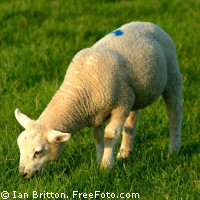Ethics group warns of animal welfare implications of cloning
The European Group on Ethics (EGE) has advised against the production of food from cloned animals and their offspring on animal welfare grounds. In an opinion published on 16 January, the group writes: 'Considering the current level of suffering and health problems of surrogate dams and animal clones, the EGE has doubts as to whether cloning animals for food supply is ethically justified.' In the opinion, the EGE cites the fact that cloning still has a relatively low efficiency and 'leads to high perinatal and postnatal disease and mortality of cloned organisms'. Abnormalities observed in cloned animals include increased weight, malformations, reduced viability at birth, respiratory problems, enlarged foetal liver, epidermal haemorrhages and kidney abnormalities. Further research is needed to investigate the health of the descendants of cloned animals. The EGE sets out a number of recommendations in case cloned animals are introduced onto the European market. On animal welfare, they note that animals should be guaranteed the 'five freedoms' set out by the World Organisation for Animal Health, namely: freedom from hunger, thirst and malnutrition; from fear and distress; from physical and thermal discomfort; from pain, injury and disease; and to express normal patterns of behaviour. They also call for further studies and analyses on long-term animal welfare and health implications for clones and their offspring. Another EGE recommendation concerns public participation. 'Public debates should be promoted on the impact of farm animal cloning on agriculture and environment, on societal impact of increasing meat consumption and rearing of bovines, as well as on the fair distribution of food resources,' the EGE writes, adding that the Commission should take a 'pro-active role' in promoting these debates. The EGE also recommends that the Commission take initiatives to ensure consumers' freedoms and rights, although the experts acknowledge that compliance with World Trade Organisation provisions may complicate the situation. The opinion also addresses farm animal biodiversity and sustainability. 'The Commission should take proper measures to preserve the genetic heritage of farm animal species, for example by funding projects that aim to preserve domesticated breeds in Europe and to promote sustainable agriculture,' the EGE states. Finally, the ethicists call for further research into the impacts on animal cloning, its impact on human health, and animal welfare for farmed species not covered by EFSA. The EGE's opinion follows hot on the heels of opinions on the safety of food from cloned animals from the European Food Safety Agency (EFSA) and the US Food and Drug Administration (FDA). Both bodies concluded that food from animal clones would be safe to eat. The EGE states that it is aware of both opinions. In a statement, EFSA says that it welcomes the EGE's opinion, pointing out that 'the issue of animal cloning raises ethical, moral and other societal issues beyond its [EFSA's] remit.' For its part, the European Commission has said it will examine the EFSA and EGE opinions in detail before launching a wide-ranging consultation to obtain stakeholders' opinions. Meanwhile it has started working on a Eurobarometer survey to investigate consumers' attitudes and demand for information on cloning. The results of this survey should be available in the second half of the year.



